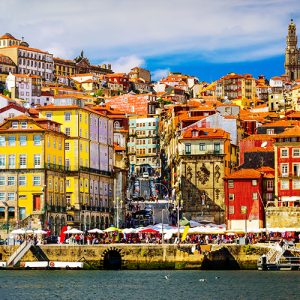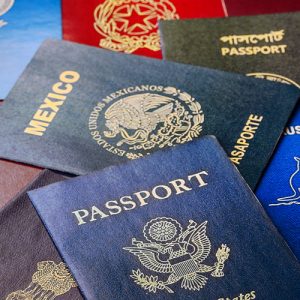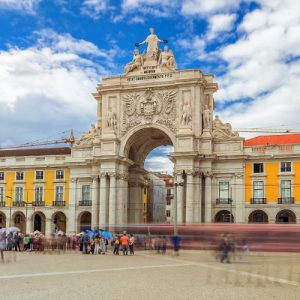Industry News

The Wealth Exodus: Redrawing the Demographic Map
- Posted on May 20, 2025
- In Industry News, Global Citizenship
How Political Shifts Are Fueling Global Citizenship
Maps aren’t just about land. Sure, geography shows us that landmasses shift, continents drift, and borders are redrawn, but maps, in their truest sense, are about people. It is the movements of people that give maps meaning, that transform mere lines and borders into stories of migration, ambition, and the search for opportunity.
In this sense, the true value of a map lies not in its topography, but in the flow of people – it’s not only their movement that shapes the world, but the legacy and impact they leave behind. As political upheavals, economic uncertainties, and social shifts define this century, the new “map” being drawn is one of global mobility. This is not a map of borders or countries in the conventional sense – it’s a map of individuals making purposeful choices about where to live, work, and invest.
History Repeats
Throughout history, politics has been one of the most powerful forces shaping human migration. From empires rising and falling to revolutions, wars, and ideological swings, political shifts have redrawn the paths people take, not just across continents, but across classes and generations. When regimes change, freedoms shrink, or uncertainty grows, people move.
And it’s often the most capable, those with means, education, and assets, who act first. Whether it was wealthy Cubans fleeing Castro’s revolution, Iranian elites escaping after the 1979 Islamic shift, or Hong Kong professionals leaving amid Beijing’s tightening grip, the pattern is clear: when politics becomes unpredictable, people seek sovereignty elsewhere.
The Numbers Don’t Lie
This historical pattern is accelerating in real time. Our recent surveys reveal a striking trend: political instability, divisive elections, and uncertain futures are prompting a growing number of affluent individuals to explore second citizenship.
In the United States, more than half of millionaires surveyed are considering alternative passports ahead of the 2024 election.
In Germany, nearly 37% of high-net-worth individuals are actively seeking a Plan B, citing political polarization and economic pressures.
The trend extends across the United Kingdom, France, and Canada, where rising taxation, changing social contracts, and shifting global alliances are pushing the wealthy to think globally about their future.
What was once a niche strategy for ultra-rich families has become a mainstream move for mobile professionals and entrepreneurs worldwide.
Sociological Lens: The “Hourglass Society”
Some sociologists describe today’s world as shifting into an hourglass structure: a shrinking middle class, with expanding groups at both the top and bottom. It raises a provocative question, are we moving toward a world with just two social tiers: the rich and the poor?
The answer isn’t simple. But one trend is clear: wealth is becoming increasingly mobile, while poverty remains geographically trapped. Many countries are now redesigning their immigration systems to attract the rich, offering fast-track residency and citizenship in exchange for investment, take the proposed Trump Gold Card in the U.S., for example.
This movement doesn’t just transfer wealth, it reshapes economies, political landscapes, and cultures. A new mobility elite is emerging people who can transcend borders and crises with ease, while others remain confined by the limits of their nationality.
Sociologist Zygmunt Bauman captured this well in his concept of “liquid modernity”, a world where life is no longer anchored by tradition or territory, but shaped by flexibility, speed, and constant reinvention. In this fluid reality, identity is portable, and mobility is power.
From a psychological perspective, “Maslow’s Hierarchy of Needs” helps explain why so many are choosing this path. Once safety and financial security are achieved, the next human drive is self-actualization, the pursuit of freedom, purpose, and a life aligned with one’s values. For many of today’s global citizens, that means access to better systems, personal autonomy, and a chance to shape their own futures.
The Future Is Fluid
Our world is no longer structured by rigid categories like nationality, class, or geography. Instead, we are entering an era where mobility, flexibility, and adaptability define how people live, work, and belong.
As economist Thomas Piketty points out, inequality isn’t just economic, it’s geographic. Those who can relocate their wealth (and themselves) are rewriting the rules of class and citizenship. The result? A new social contract based not on birthright, but on choice, foresight, and mobility. Global citizenship is no longer a luxury; it’s becoming a form of modern agency.
The question isn’t whether mobility will shape the future, it’s whether you’ll shape your own. Be the architect of your future with Arton Capital.
Related news

Portugal Proposes New Rules for Citizenship and Residency
2025-06-24Portugal Proposes New Rules for Citizenship and Residency
Proposed Law Introduces Stricter Integration Tests, Revised Timelines, and Family Reunification Changes On June 23,
Industry News, Portugal
Greece’s Golden Visa Backlog Shrinks, and Demand Remains Steady
2025-06-23Greece’s Golden Visa Backlog Shrinks, and Demand Remains Steady
Greece’s Golden Visa Remains a Popular Choice for Investors Greece’s Golden Visa program continues to
Greece, Industry News
The Hidden Battlefield: Freedom, Identity and Mobility
2025-06-17The Hidden Battlefield: Freedom, Identity and Mobility
Why Global Citizens Hedge with Mobility. Not all conflicts begin with the sound of sirens.
Global Citizenship, Industry News
What Portugal’s Centre-Right Win Means for Golden Visa Investors
2025-05-22What Portugal’s Centre-Right Win Means for Golden Visa Investors
New Government, Same Opportunity In recent years, Portugal has become one of Europe’s top destinations
Industry News, Portugal



